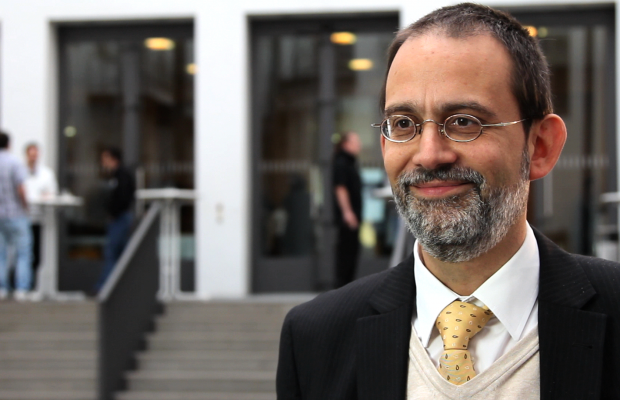Web and Internet technologies initiated the fourth industrial revolution in less than 20 years since their entry into mainstream communication scenarios, significantly changing economics and society. Digitization and mobile technologies accelerate communication and provide the tools to control value chains of ever increasing complexity. These value chains have long crossed the limits of single organizations or countries. Big Data, clustering and semantic technologies deliver increased precision in the data analysis of electronic communication structures gathered via sensors and contextual analysis of everyday environments.
The ubiquitous flow of digital information empowers governments to track and analyze economic and social structures and adapt their legal systems accordingly, thus increasing their complexity making information technology a requirement to control them.
Economic success is dependent on rapid information exchange, real-time communication, and virtual market presence. These become critical success factors in the marketplace. Investment in digital solutions and communications accelerates growth and success in the marketplace according to our studies.
Digital communication channels increase information exchange inside and outside companies but may not necessarily also improve understanding.
Social media replace other digital communication systems and sometimes replace personal exchange specially in a younger audience. The effectiveness of social media communications remains unclear.
Mobile payment solutions increase speed and transparency of financial transactions in an increasingly virtual financial marketplace. Won’t further disconnection of the financial system from economic performance and our resources lead to loss of control over the real economic structure?
When countries loose influence on globalized digital markets, does the communication medium internet require its own, uniform legal and economic infrastructure? Will the web someday become a sovereign state ? Who will control it? And how will the separation of powers work?
The trend to centralization is back. Applications and data move into the cloud infrastructure. Software is no longer individually bought but rented under a limited access license in a closed ecosystem. Rights of use of data are transferred to cloud providers. How will these developments change our communication behavior?
New gadgets such as smart glasses, smart watches, smart wearables, and other companions change the way we communicate and interact. How do these changes influence economic circles?
These questions are highlighted by the six conference talks. A final panel will discuss current research and demand for future research and development with the inention to promote research-oriented networking between participants. After a final Keynote, results from the panel will be presented together with an outlook for future action.
Date
Friday, November, 8th 2013
10 AM – 6 PM
Venue
Vertretung des Landes Sachsen-Anhalt beim Bund in Berlin, Luisenstraße 18, 10117 Berlin, Germany





Mobile payment solutions increase speed and transparency of financial transactions in an increasingly virtual financial marketplace. Won't further disconnection of the financial system from economic performance and our resources lead to loss of control over the real economic structure?
Michael A. Herzog, Magdeburg-Stendal University
